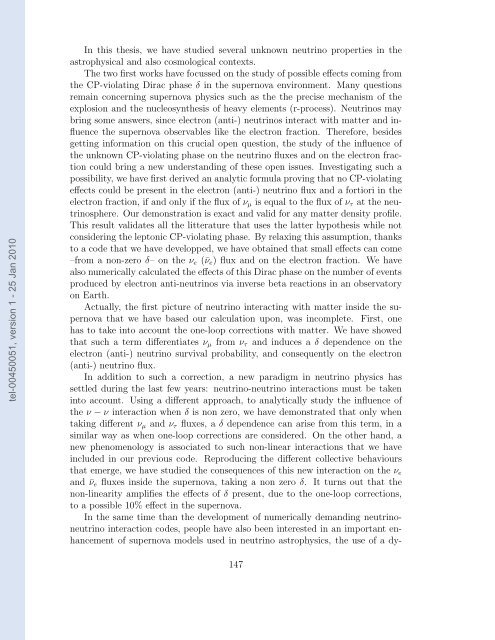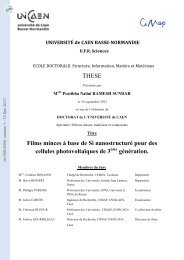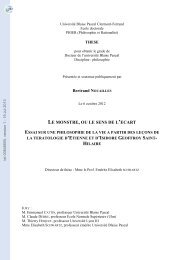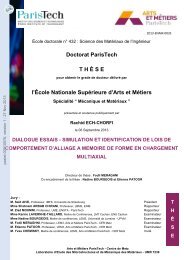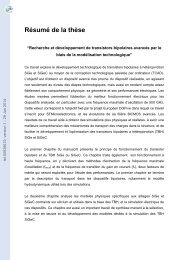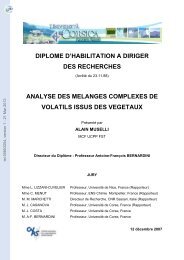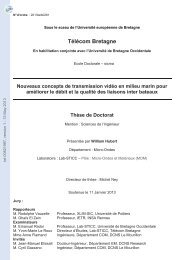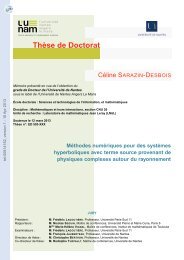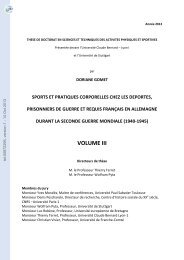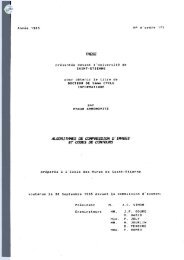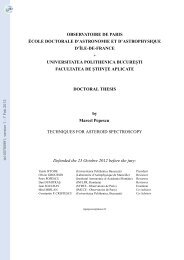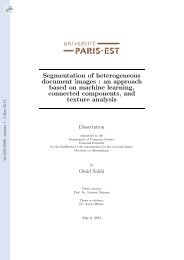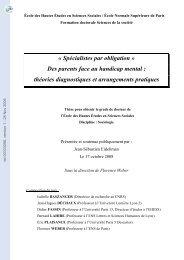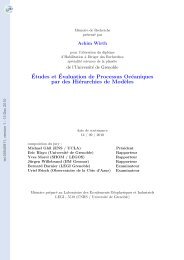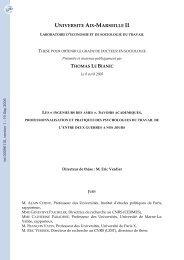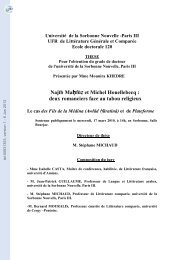Etudes des proprietes des neutrinos dans les contextes ...
Etudes des proprietes des neutrinos dans les contextes ...
Etudes des proprietes des neutrinos dans les contextes ...
Create successful ePaper yourself
Turn your PDF publications into a flip-book with our unique Google optimized e-Paper software.
tel-00450051, version 1 - 25 Jan 2010<br />
In this thesis, we have studied several unknown neutrino properties in the<br />
astrophysical and also cosmological contexts.<br />
The two first works have focussed on the study of possible effects coming from<br />
the CP-violating Dirac phase δ in the supernova environment. Many questions<br />
remain concerning supernova physics such as the the precise mechanism of the<br />
explosion and the nucleosynthesis of heavy elements (r-process). Neutrinos may<br />
bring some answers, since electron (anti-) <strong>neutrinos</strong> interact with matter and influence<br />
the supernova observab<strong>les</strong> like the electron fraction. Therefore, besi<strong>des</strong><br />
getting information on this crucial open question, the study of the influence of<br />
the unknown CP-violating phase on the neutrino fluxes and on the electron fraction<br />
could bring a new understanding of these open issues. Investigating such a<br />
possibility, we have first derived an analytic formula proving that no CP-violating<br />
effects could be present in the electron (anti-) neutrino flux and a fortiori in the<br />
electron fraction, if and only if the flux of νµ is equal to the flux of ντ at the <strong>neutrinos</strong>phere.<br />
Our demonstration is exact and valid for any matter density profile.<br />
This result validates all the litterature that uses the latter hypothesis while not<br />
considering the leptonic CP-violating phase. By relaxing this assumption, thanks<br />
to a code that we have developped, we have obtained that small effects can come<br />
–from a non-zero δ– on the νe (¯νe) flux and on the electron fraction. We have<br />
also numerically calculated the effects of this Dirac phase on the number of events<br />
produced by electron anti-<strong>neutrinos</strong> via inverse beta reactions in an observatory<br />
on Earth.<br />
Actually, the first picture of neutrino interacting with matter inside the supernova<br />
that we have based our calculation upon, was incomplete. First, one<br />
has to take into account the one-loop corrections with matter. We have showed<br />
that such a term differentiates νµ from ντ and induces a δ dependence on the<br />
electron (anti-) neutrino survival probability, and consequently on the electron<br />
(anti-) neutrino flux.<br />
In addition to such a correction, a new paradigm in neutrino physics has<br />
settled during the last few years: neutrino-neutrino interactions must be taken<br />
into account. Using a different approach, to analytically study the influence of<br />
the ν − ν interaction when δ is non zero, we have demonstrated that only when<br />
taking different νµ and ντ fluxes, a δ dependence can arise from this term, in a<br />
similar way as when one-loop corrections are considered. On the other hand, a<br />
new phenomenology is associated to such non-linear interactions that we have<br />
included in our previous code. Reproducing the different collective behaviours<br />
that emerge, we have studied the consequences of this new interaction on the νe<br />
and ¯νe fluxes inside the supernova, taking a non zero δ. It turns out that the<br />
non-linearity amplifies the effects of δ present, due to the one-loop corrections,<br />
to a possible 10% effect in the supernova.<br />
In the same time than the development of numerically demanding neutrinoneutrino<br />
interaction co<strong>des</strong>, people have also been interested in an important enhancement<br />
of supernova models used in neutrino astrophysics, the use of a dy-<br />
147


